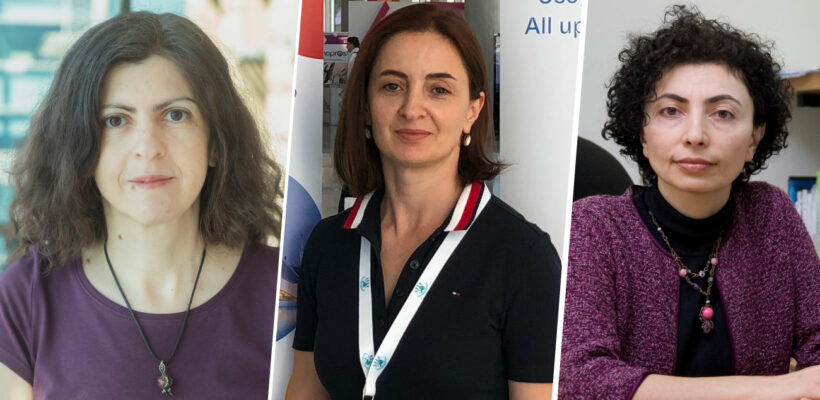
AUA’s Meghrigian Institute Publishes in the Journal of Healthcare
2 min readYEREVAN, Armenia — The American University of Armenia (AUA) Garo Meghrigian Institute for Preventive Ophthalmology (Meghrigian Institute) at the Avedisian Onanian Center for Health Services Research and Development (CHSR) of the Gerald & Patricia Turpanjian College of Health Sciences (CHS) published a new study titled “Health-Related Quality of Life after Cataract Surgery in Armenia: A Cross-Sectional Survey.” The research article appeared in the Journal of Healthcare, an international, scientific, peer-reviewed, open-access journal on healthcare systems, industry, technology, policy, and regulation. It is authored by Tsovinar Harutyunyan (MPH ’99), Ph.D.; Aida Giloyan (MPH ’07), M.S.; and Varduhi Petrosyan, M.S., Ph.D.
The study assessed the visual outcomes and explored health-related quality of life (HRQoL) along with associated factors following cataract surgery in Armenia. Approximately 72.8% of the eyes examined had good visual outcomes, 17.7% had borderline outcomes, and 9.5% had poor visual outcomes. The mean HRQoL score for physical health was 50.8 over 100, while the mean HRQoL score for mental health was 49.9 over 100. A higher HRQoL score signifies a better HRQoL.
Gender, socioeconomic status, presence of non-communicable disease, and giving and receiving tangible social support were significantly linked to the physical component of HRQoL. Giving social support was associated with a higher HRQoL score. The factors significantly associated with the mental component included socioeconomic status, having a non-communicable disease, and giving tangible social support. Within the context of this study, social support encompasses offering assistance or comfort to others to help them cope with various challenges. Giving social support stands out as one of the most crucial positive contributors to HRQoL, particularly for individuals with visual impairments who may experience feelings of isolation from society and a decline in social status.
The visual outcomes post-cataract surgery in the sampled patients fall below the recommended World Health Organization norms, highlighting the need for quality ophthalmological surgical care. The findings indicate the importance of monitoring visual outcomes, particularly in women, patients with poor socioeconomic status, and those who have non-communicable diseases.
The AUA Turpanjian College of Health Sciences works actively to improve population health and health services in Armenia and the region through interdisciplinary education and development of health professionals to be leaders in public health, nursing, health services research and evaluation, and health care delivery and management.
